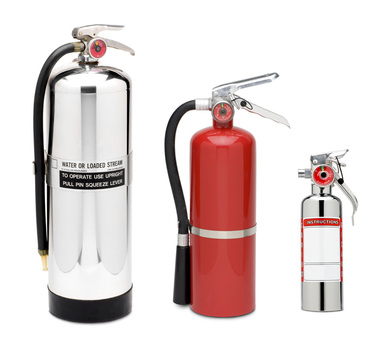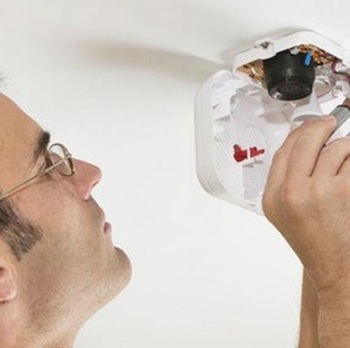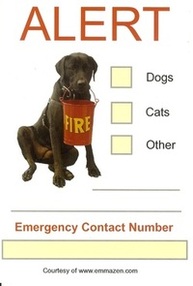Emergency Preparedness Actions for Pets
Were aiming for a pet savvy public! Helping you to figure out what to do,
how to do it and where to go before an emergency happens.
Eliminating undue stress to both yourself and your pets!
how to do it and where to go before an emergency happens.
Eliminating undue stress to both yourself and your pets!
What keeps you safe also provides safety to your pets.
1. Do you have a Working Fire Extinguisher in your home?
2. Could you tell us where is located without thinking about it? Walking by and physically touching it once a week will help you to remember through routine so your not trying to "remember" during the stress of an emergency.
3. Did you know fire extinguishers have expiration dates, give yours a check!
4. Did you know there are different types of fires and different chemicals used to stifle each fire type. You many need different ones for your kitchen, garage and home? Ask your local retailer for more information or learn more at
US Fire Administration's website on using the correct class of retardant for your home, because using the wrong type can be life-threatening.
We also suggest if you have never used one, to follow the instructions on your extinguisher and try one out! You don't want to go through a learning curve during the moment of an emergency!
Learn some basics on how to fight fires. For instance would you know what to do if your bacon pan went a flame? Grease fires should be smothered, NEVER use water to try and extinguish! Take some time and think about it. What would you do if a fire started here or there? Then use reputable online sights including this one to help make your emergency plan an action.
2. Could you tell us where is located without thinking about it? Walking by and physically touching it once a week will help you to remember through routine so your not trying to "remember" during the stress of an emergency.
3. Did you know fire extinguishers have expiration dates, give yours a check!
4. Did you know there are different types of fires and different chemicals used to stifle each fire type. You many need different ones for your kitchen, garage and home? Ask your local retailer for more information or learn more at
US Fire Administration's website on using the correct class of retardant for your home, because using the wrong type can be life-threatening.
We also suggest if you have never used one, to follow the instructions on your extinguisher and try one out! You don't want to go through a learning curve during the moment of an emergency!
Learn some basics on how to fight fires. For instance would you know what to do if your bacon pan went a flame? Grease fires should be smothered, NEVER use water to try and extinguish! Take some time and think about it. What would you do if a fire started here or there? Then use reputable online sights including this one to help make your emergency plan an action.
Fire and Smoke Alarms and CO Detectors
1. Do you have Working Fire Alarms in your home?
2. Do you change or test the batteries in your Smoke Detectors twice a year.
(Spring forward / Fall back)
3. Did you know that the smoke detector itself only has a life span of approximately 8 - 10 years according to FEMA.
How long has it been since you replaced yours?
4. Do you have a Carbon Monoxide Detectors in your home?
5. Did you know that the number one reason for alarm failure is; no batteries in unit!
Do not remove your fire detector's batteries!
2. Do you change or test the batteries in your Smoke Detectors twice a year.
(Spring forward / Fall back)
3. Did you know that the smoke detector itself only has a life span of approximately 8 - 10 years according to FEMA.
How long has it been since you replaced yours?
4. Do you have a Carbon Monoxide Detectors in your home?
5. Did you know that the number one reason for alarm failure is; no batteries in unit!
Do not remove your fire detector's batteries!
|
Choose your pets
emergency caregivers |
According to the National Fire Protection Association;
Cooking, is the LEADING cause of home fires!
Cooking, is the LEADING cause of home fires!
Stand by your pan!
National studies by NFPA show most house fires start in kitchens, specifically due to cooking accidents. Remember having to turn those handles in so the babies wouldn't reach them? Well, our pets are your new baby, and assume they are babies their whole lives. First of all never leave a pan unattended! You should always, Stand by Your Pan! Also consider accident avoidance training. If the kitchen is the most dangerous room then why do we allow your pets in there to begin with? In our home it's a game, we started with a piece of tape on the floor outside of kitchen and everyone who sat there got treats thrown to them. Now a days, I cook with an audience from the dinning room!
Other Disaster Preparedness considerations
Most fatal fires are more likely to start in the bedroom due to the amounts of combustible materials and the fact that we could be sleeping only exasperates the situation. Make sure you have working fire alarm in your bedroom and a clean clear uncluttered exit!
Other disaster awareness concerns include electrical cords, are yours old, bent or hot to the touch? Those are all signs of a need for replacement. You could be on your computer right now reading this, how long have all your electronic been on? When is the last time you bent down and check all the cords? Still there are so many more places are pets can get in trouble, under the sink, in the garage, poisons plants indoors and out, candles, fireplaces and even some plain old human food. Our homes are filled with disasters tiny and large. Get down on all fours and "see your environment" from your pets level. Research poison lists, learn what causes for concerns are. Becoming proactive in your pets health and well being saves lives.
Other disaster awareness concerns include electrical cords, are yours old, bent or hot to the touch? Those are all signs of a need for replacement. You could be on your computer right now reading this, how long have all your electronic been on? When is the last time you bent down and check all the cords? Still there are so many more places are pets can get in trouble, under the sink, in the garage, poisons plants indoors and out, candles, fireplaces and even some plain old human food. Our homes are filled with disasters tiny and large. Get down on all fours and "see your environment" from your pets level. Research poison lists, learn what causes for concerns are. Becoming proactive in your pets health and well being saves lives.
To learn more about fire safety please visit our Federal Emergency Management Agency or the National Fire Protection Association.







